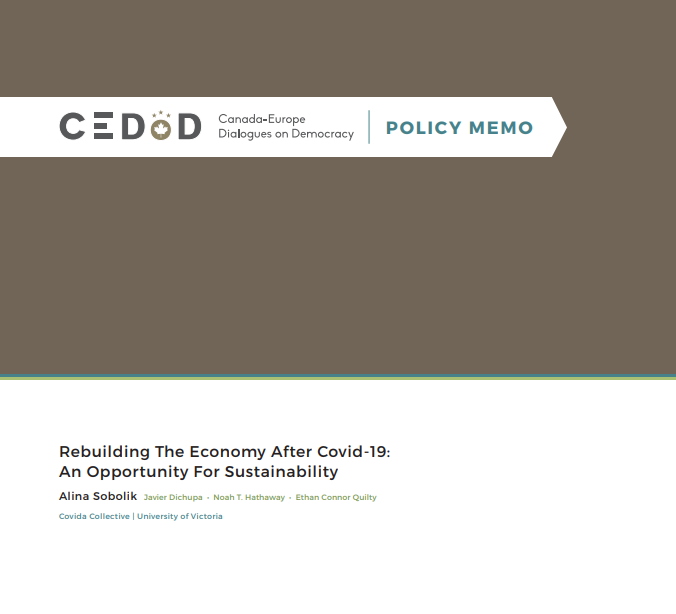Are Canadian and EU Environmental Policies Converging?
By Inger Weibust
Political scientists are interested in policy convergence for its own sake: do countries’ policies tend to become more similar over time? If so, why? For environmental policy, particularly on climate, the question has practical urgency. To limit global temperature rise to less than 2°C, it is imperative that governments take action to limit the concentration of Greenhouse Gases (GHGs) in the atmosphere. To date, one can observe global policy convergence of a sort: the majority of jurisdictions have implemented policies that fall far short of achieving this goal.
Comparing Canada and the European Union, at least until recently, there has been significant divergence. Canada has been a laggard, with the exception of some provinces, while the EU has been a leader. The desirable outcome is upward convergence on stringent measures sufficient to limit global climate change. The urgency of the situation has led to calls for unilateral measures by various jurisdictions. There are calls for international leadership, but also for provinces, municipalities, and other subnational governments to take action. There is an assumption that if a few leaders are brave enough to act, other jurisdictions will follow suit because their anxieties will have been allayed through a demonstration effect. Schreurs and Tiberghien (2007) have argued that multi-level governance systems can provide multiple opportunities for leadership rather than just generating veto players, and that indeed this has happened in the European Union.
On climate and energy policy, we see substantial convergence within the European Union (EU), because of the strong leadership initiated by some member states (e.g., initially Germany, the United Kingdom and the Netherlands), then supported by the Council and pursued by the European Commission. The EU has constructed a relatively effective system of burden-sharing that recognizes differing circumstances of member states. Nonetheless, significant diversity remains across European member states in terms of how far and how eagerly they are tackling emissions reduction and decarbonisation of their economies.
Canada-Europe-Transatlantic-Dialogue-Capstone-Report-March-2017








